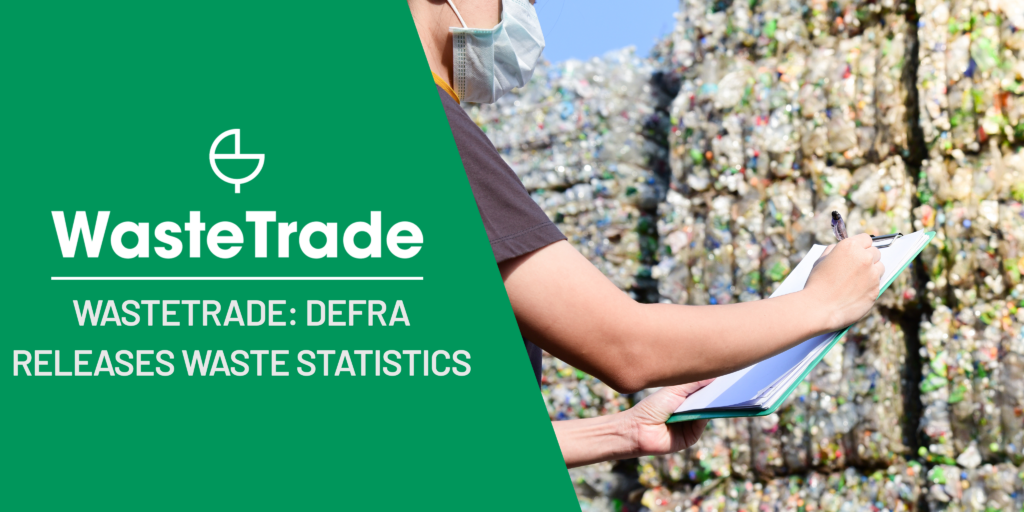Jul 11, 2023
Defra’s Newly Released Waste Statistics: A Detailed Analysis

The UK’s Department for Environment, Food and Rural Affairs (Defra) recently published the nation’s waste statistics for 2021, casting a spotlight on the recycling efforts across the country. The data reveals nuanced improvements, stagnation in some areas, and continued cause for concern in others. However, industry experts and stakeholders maintain that the fight against waste pollution and for a more sustainable future remains a work in progress.
Measuring Recycling Efforts Across the UK
According to Defra, the UK recycling rate for household waste, including Incinerator Bottom Ash metal (IBAm, the residual metal in an incinerator after waste is burned), experienced a marginal increase from 44.4% in 2020 to 44.6% in 2021. The data also provides a country-wide breakdown, showing recycling rates for household waste in 2021 were: 44.1% in England, 48.4% in Northern Ireland, 41.7% in Scotland, and 56.7% in Wales.
Yet, in an admission of the uphill battle against waste, a Defra spokesperson said “It’s imperative we recycle more of our waste and make the most of our finite and precious resources. These latest figures show we are making good progress…but we know there’s more to do.
“We are introducing major reforms to drive up recycling levels, step up our war on plastic pollution and tackle litter – from making manufacturers more responsible for the packaging they produce to introducing a deposit return scheme (DRS), building on our virgin plastic tax and bans on many single-use plastics.”
Unfolding Challenges in Waste Management
Although there has been a small uptick in the recycling rate, there is an alarming trend hidden within the data. The amount of the UK’s biodegradable municipal waste (BMW) sent to landfill saw a significant rise, increasing from 6.1 million tonnes in 2020 to 6.8 million tonnes in 2021. Moreover, the recycling rate for packaging waste remained stagnant at 63.2% in 2021, only a hair’s breadth higher than the 2020 rate of 63.1%.
The data reveals that the UK produced a staggering 40.4 million tonnes of commercial and industrial (C&I) waste in 2020, with England alone contributing 33.8 million tonnes (84%) to this figure. The subsequent estimates for England in 2021 show a minor increase, with C&I waste generation reaching approximately 33.9 million tonnes.
Further scrutiny of the figures illustrates the scale of the waste issue, with the UK having generated a total of 222.2 million tonnes of waste in 2018. England was responsible for the lion’s share, creating 187.3 million tonnes (84%) of the total waste.
Defra adds a caveat to the statistics, explaining that the reporting period overlaps with the COVID-19 pandemic and the national lockdowns, which may have influenced the figures.
Packaging Waste and Stagnant Recycling Rates
The packaging waste statistics reveal interesting dynamics between different materials. Paper and cardboard waste topped the list in terms of quantity, generating 5.4 million tonnes, but also achieved a promising recycling rate of 70.6%. Metals led in recycling efficacy with a 76% rate, closely followed by glass at 73.6%. On the other hand, the UK produced 2.51 billion tonnes of plastic waste, which had a comparatively lower recycling rate of 44.2%.
Commenting on the figures, FCC Environment Operations Director, Steve Longdon, stressed the reality that “This latest set of data again confirms the UK’s recycling rate has essentially flatlined, having stayed at around the 45% mark since 2015.”
WasteTrade’s Perspective
WasteTrade, an online marketplace dedicated to making commercial waste recycling more convenient and profitable, has voiced concern over these stagnating recycling rates. The organisation firmly believes that Defra needs to expedite its reforms processes with urgency, bringing into effect comprehensive measures to stimulate a rise in recycling rates.
As a platform facilitating swift and hassle-free recycling for businesses, WasteTrade understands the value of effective and streamlined procedures and regulations. By handling compliance and logistics internally, WasteTrade encourages enterprises to embrace recycling without the usual administrative red tape. WasteTrade’s focus is on highlighting the ease and profitability of recycling to businesses, promoting a circular economy and fostering a sustainable future.
However, the company recognises the importance of governmental action. Government reforms can pave the way for more consistent collections, extended producer responsibility, and effective schemes such as the Deposit Return Scheme (DRS). This comprehensive, multi-level approach is necessary to achieve the UK’s ambitious recycling target of 65% by 2035.
As Longdon points out, “If we are to meet the UK’s recycling target of 65% by 2035, both industry and local authorities require policy clarity from the government on key measures.”
While the UK’s recycling rates have seen minor improvements, the general stagnation signals that further action is needed. The waste statistics from Defra serve as a potent reminder of the challenges ahead, emphasising the urgent need for more robust waste management and recycling strategies. It’s evident that everyone, from governmental bodies to local authorities, waste management companies to waste-producing businesses, must play their part in reinvigorating the nation’s recycling efforts.





